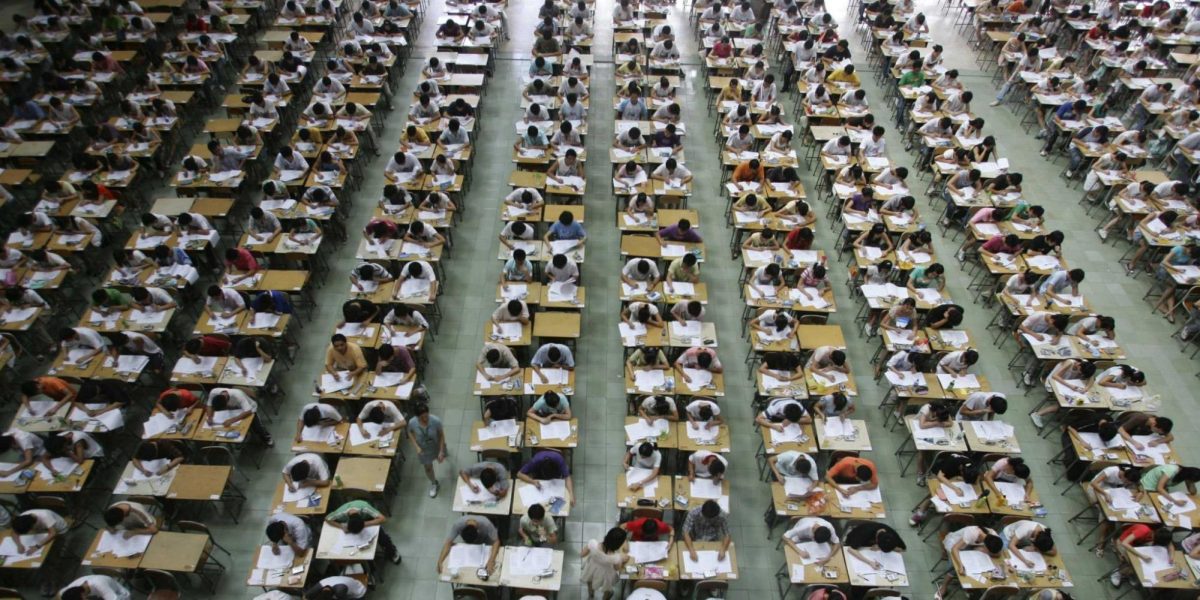In the fiercely competitive world of higher education, countless prestigious institutions across the globe challenge students’ academic abilities to the maximum to gain admission into their schools. In many cases, entrance exams are the greatest predictor of a student’s chance of admission into certain institutions, especially when the population is so competitive that there needs to be an explicit, simple way to weed students out of the admissions race. Here are five of the toughest competitive college entrance exams in the world, each one bringing its unique style but demanding common academic rigor.
Gaokao (China)
The Gaokao, China’s national university entrance exam, is often dubbed the “world’s toughest exam.” Taken by over ten million students annually, the Gaokao is a marathon of academic endurance with the exam lasting approximately nine hours for two to three days. Covering subjects such as Chinese literature, mathematics, and foreign languages, the Gaokao is a make-or-break moment for Chinese students, as the exam is often seen as the only way for students to gain admission into Chinese colleges and universities.
IIT-JEE Advanced (India)
In India, where engineering is among the most revered professions, the Joint Entrance Exam (JEE) Advanced is the gateway to the prestigious Indian Institutes of Technology (IITs). With an acceptance rate is less than one percent, the JEE demands exceptional critical thinking and problem-solving abilities. The test consists of a math, physics, and chemistry section, each of which is a three-hour individual paper. The competition is fierce, with hundreds of thousands of applicants aspiring for a mere few thousand seats. Success on the JEE-Advanced is not just a test of academic excellence but continuous dedicated hard work for years before finally taking the exam.
SAT (USA)
In the United States, the SAT (Scholastic Achievement Test) is a standard requirement for most colleges and universities nationwide. During the COVID-19 Pandemic, most US colleges became test-optional, but today colleges are slowly but surely reestablishing the SAT as a requirement for applicants. The SAT consists of a mathematics and a critical reading and writing section, challenging students’ readiness and solid foundation for college-level studies. While not considered to be as difficult as the other college entrance exams on this list, the SAT still gets a place as it is a key factor that can separate students’ readiness from multiple demographics throughout the US. Students in the US may also choose to take the ACT, or American College Testing.
Civil Service Exam (China)
Originating in the Sui Dynasty (581-618 AD) and fully developed during the Tang Dynasty (618-907 AD), this imperial examination was a way of selecting officials for the state’s bureaucracy based on their common knowledge of Chinese writing, Confucian classics, and literary style, according to World Book Encyclopedia. Civil Service examinations were initially organized by the Board of Civil Office, then by the Board of Rites. The exam attracted about 2,000 candidates each year and a slight one percent of examinees passed the exam. Success on the Civil Service Exam was seen as the ultimate path to social mobility and high social status in Imperial China.
MCAT (North American Countries + Australia)
The Medical College Admission Test, also known as the MCAT, is a computer-based standardized exam used by medical schools to determine applicant readiness for medical education. The MCAT is approximately 7.5 hours long, including breaks; thus, it requires substantial mental and physical endurance to focus for the entire exam duration. The exam assesses students’ knowledge of a wide range of science topics including biology, chemistry (general and organic), biochemistry, and physics. There are 230 questions divided across four sections, including Chemical and Physical Foundations of Biological Systems (CPBS), Critical Analysis and Reasoning Skills (CARS), Biological and Biochemical Foundations of Living Systems (BBLS), and Psychological, Social, and Biological Foundations of Behavior (PSBB).













































































































































